第19章
We never went to Chinon;it was a fatality.We planned it a dozen times;but the weather interfered,or the trains didn't suit,or one of the party was fatigued with the adventures of'the day before.This excursion was so much postponed that it was finally postponed to everything.Besides,we had to go to Chenonceaux,to AzayleRideau,to Langeais,to Loches.
So I have not the memory of Chinon;I have only the regret.But regret,as well as memory,has its visions;especially when,like memory,it is assisted by photographs.The castle of Chinon in this form appears to me as an enormous ruin,a mediaeval fortress,of the extent almost of a city.It covers a hill above the Vienne,and after being impregnable in its time is indestructible today.(I risk this phrase in the face of the prosaic truth.Chinon,in the days when it was a prize,more than once suflered capture,and at present it is crumbling inch by inch.It is apparent,however,I believe,that these inches encroach little upon acres of masonry.)It was in the castle that Jeanne Darc ?????
had her first interview with Charles VII.,and it is in the town that Francois Rabelais is supposed to have been born.To the castle,moreover,the lover of the picturesque is earnestly recommended to direct his steps.But one cannot do everything,and I would rather have missed Chinon than Chenonceaux.Fortunate exceedingly were the few hours that we passed at this exquisite residence.
"In 1747,"says JeanJacques Rousseau,in his "Confessions,""we went to spend the autumn in Touraine,at the Chateau,of Chenonceaux,a royal residence upon the Cher,built by Henry II.for Diana of Poitiers,whose initials are still to be seen there,and now in possession of M.Dupin,the farmergeneral.
We amused ourselves greatly in this fine spot;the living was of the best,and I became as fat as a monk.
We made a great deal of music,and acted comedies."This is the only deion that Rousseau gives of one of the most romantic houses in France,and of an episode that must have counted as one of the most agreeable in his uncomfortable career.The eighteenth century contented itself with general epithets;and when JeanJacques has said that Chenonceaux was a "beau lieu,"he thinks himself absolved from further characterization.We later sons of time have,both for our pleasure and our pain,invented the fashion of special terms,and I am afraid that even common decency obliges me to pay some larger tribute than this to the architectural gem of Touraine.Fortunately I can discharge my debt with gratitude.In going from Tours you leave the valley of the Loire and enter that of the Cher,and at the end of about an hour you see the turrets of the castle on your right,among the trees,down in the meadows,beside the quiet little river.The station and the village are about ten minutes'walk from the chateau,and the village contains a very tidy inn,where,if you are not in too great a hurry to commune with the shades of the royal favorite and the jealous queen,you will perhaps stop and order a dinner to be ready for you in the evening.
A straight,tall avenue leads to the grounds of the castle;what I owe to exactitude compels me to add that it is crossed by the railwayline.The place is so arranged,however,that the chateau need know nothing of passing trains,which pass,indeed,though the grounds are not large,at a very sufficient distance.
I may add that the trains throughout this part of France have a noiseless,desultory,dawdling,almost stationary quality,which makes them less of an offence than usual.It was a Sunday afternoon,and the light was yellow,save under the trees of the avenue,where,in spite of the waning of September,it was duskily green.Three or four peasants,in festal attire,were strolling about.On a bench at the beginning of the avenue,sat a man with two women.As I advanced with my companions he rose,after a sudden stare,and approached me with a smile,in which (to be Johnsonian for a moment)certitude was mitigated by modesty and eagerness was embellished with respect.
He came toward me with a salutation that I had seen before,and I am happy to say that after an instant Iceased to be guilty of the brutality of not knowing where.There was only one place in the world where people smile like that,only one place where the art of salutation has that perfect grace.This excellent creature used to crook his arm,in Venice,when Istepped into my gondola;and I now laid my hand on that member with the familiarity of glad recognition;for it was only surprise that had kept me even for a moment from accepting the genial Francesco as an ornament of the landscape of Touraine.What on earth the phrase is the right one was a Venetian gondolier doing at Chenonceaux?He had been brought from Venice,gondola and all,by the mistress of the charming house,to paddle about on the Cher.
Our meeting was affectionate,though there was a kind of violence in seeing him so far from home.He was too well dressed,too well fed;he had grown stout,and his nose had the tinge of good claret.He remarked that the life of the household to which he had the honor to belong was that of a casa regia;which must have been a great change for poor Checco,whose habits in Venice were not regal.However,he was the sympathetic Checco still;and for five minutes after I left him I thought less about the little pleasurehouse by the Cher than about the palaces of the Adriatic.